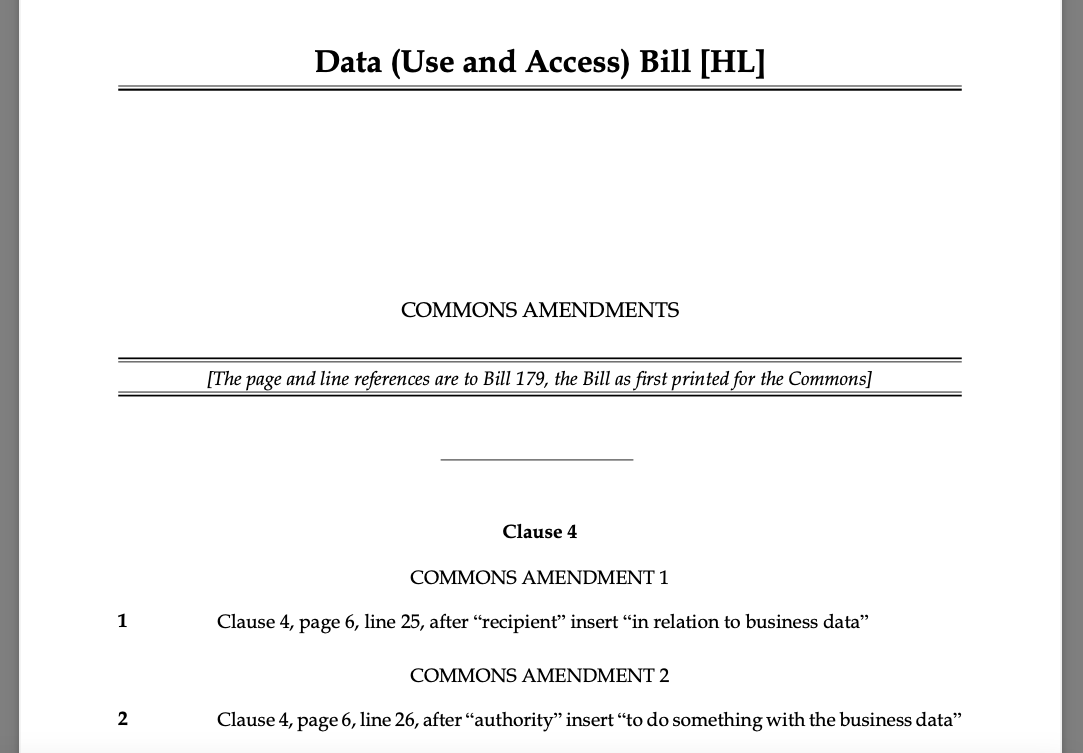Data Bill amendments on AI Transparency
The Data (Use and Access) Bill, which is currently passing through Parliament, has been an opportunity to call for greater protection for creators when it comes to use of the works by AI developers through the scraping of the Internet.

A number of thorough amendments, tabled by Baroness Kidron for the Data Bill, were rejected by government on the 7th May and Bill then passed on to the Lords. An amendment (49) focussing on transparency, again tabled by Baroness Kidron, passed with cross-party support in the House of Lords on 12 May – 272 in support versus 125 against. This clear victory sends a clear message to the Government on creators’ growing concern about the unlicensed use of copyrighted material in AI development which risks undermining jobs, growth and opportunity.
Transparency is important because it would require the developers to reveal what works were used to in the datasets which train their generative AI, allowing creators to take action if their individual works were included without specific permission, or licence their works to developers if they wished to. The amendment also requires transparency over the use of the ‘bots’ that ‘scrape’ content from the internet to train AI, whether they are controlled by an AI firm or a third party. The amendment requires the transparency provisions to be enforced by the Information Commissioners’ Office.
AOI as part of the Creators’ Rights Alliance (CRA) is urging Ministers to adopt this proportionate proposal on transparency when the Bill returns to the House of Commons.
“Britain’s creative sector is not only culturally significant—it’s an economic engine and a key soft power asset”, said Deborah Annetts , Chair of the Creators’ Rights Alliance. “The Government’s defeat on this shows how important it is. Tech development must not come at the expense of the creators whose work underpins it. This amendment offers a balanced step forward: it respects copyright, promotes transparency, and protects a sector employing millions. The Government has an opportunity here to show global leadership by ensuring innovation does not risk creativity. “
With the UK’s creative industries contributing over £125 billion to the economy and supporting 2.4 million jobs, the CRA warns that failure to act could leave British creators exposed—while tech firms exploit their work without transparency or consent.
Thanks to CRA
Back to News Page
